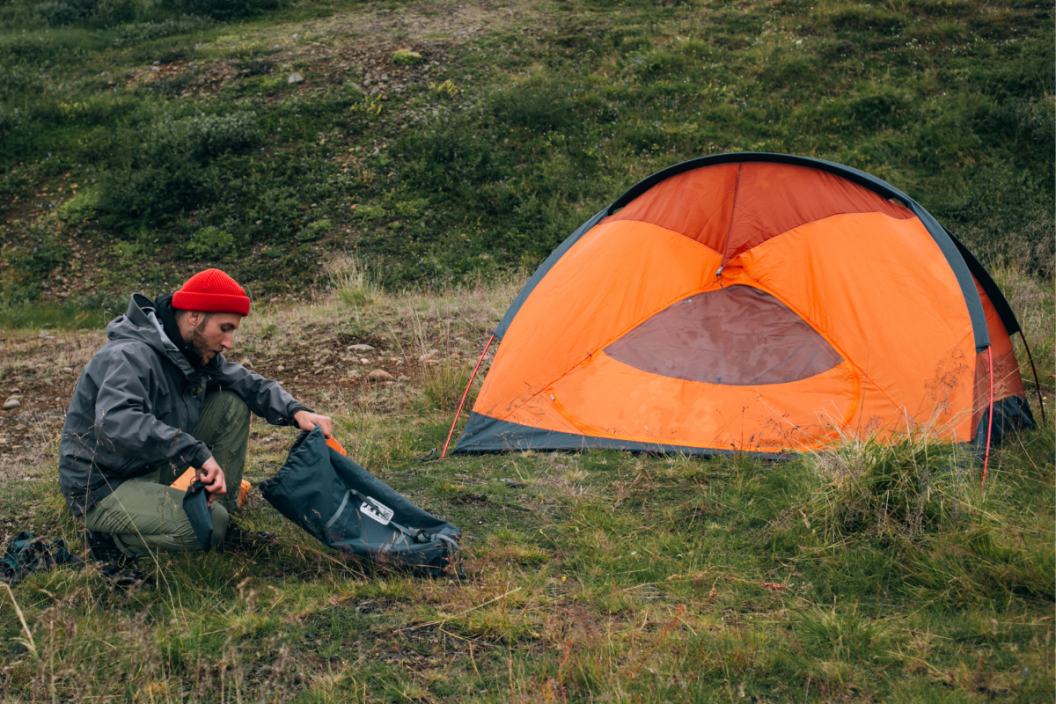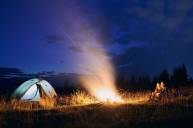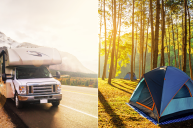In its simplest form, dry camping means going off-grid to stay overnight in unofficial camping locations. But more than that, it means setting up what is known as a dry camp — one that doesn't have modern conveniences like fresh water, sewer hookups, or electricity.
While dry camping is a great choice for RVers and tent campers alike, your first time can be pretty intimidating. With that in mind, we hope these dry camping tips and insights help make your next camping trip a dry campers' dream come true.
Where Can I Dry Camp?
https://www.instagram.com/p/CM8usgoBlmm/
Even though you can dry camp pretty much anywhere, it's probably wise that you get some sort of permission first. While popular destinations for dry campers in motorhomes include places like highway rest areas, truck stops, and Walmart parking lots, you'll want to be sure you're welcome before you unfurl your canopy.
Whether RVing, tent camping, or hauling a travel trailer, public lands like state and national parks sometimes also allow visitors to camp outside of established sites, which is known as dispersed camping.
No matter how you cut it, we would advise you to avoid trespassing on private property. This sort of wild camping is as rude as it is potentially dangerous.
Wait, You Can Camp At Walmart?
https://www.instagram.com/p/xg3pr7TMgx/
RELATED: Dispersed Camping Is The Best Vacation You'll Ever Take
Yes, some Walmarts allows RV camping in their parking lots for a 24-hour period. Although they don't have the same amenities as state parks and might not have the sort of scenic views you'll see in a national forest, they do get the job done! What's more, they have public restrooms and all the supplies you need to restock while trekking across the country.
Full-time boondockers (folks who dry camp in motorhomes) swear by these unofficial RV parks. But remember, since Walmart parking lots don't have full hookups, you'll need to find a proper dump station to empty your black water tank when the time comes.
What Should I Bring?
https://www.instagram.com/p/CM3d648B4gL/
Dry camping can easily be scaled up or down depending on how you want to do it. There's no law saying you can't bring a cell phone or your own drinking water along. Similarly, if your RV has a generator or solar power that lets it run an air conditioning system or produce hot water, it's not like the dry camping police are going to swoop in and arrest you.
That being said, you'll probably want to bring whatever you would on a normal camping trip, like a fresh water tank, propane, or whatever else you think will make your time that much more enjoyable. Flashlights, toilet paper, and water purification systems come to mind, not to mention other staples like extra batteries, first aid kits, emergency blankets...
You get the idea.
When Should I Go?
https://www.instagram.com/p/CM9nrprnVR8/
Just like everything else that comes with dry camping, when you should go is entirely up to you and your preferences. Unlike staking a claim in traditional campsites, it's not as if you have to make reservations well in advance. But depending on what sort of weather you like and how committed you are to roughing it, you'll certainly want to research the areas you plan on squatting in before you head out. If you're looking for isolation, avoid more popular destinations in favor of lesser-known underdogs.
Know some clever tips and tricks for free camping? Show your smarts on our Wide Open Roads Facebook!




